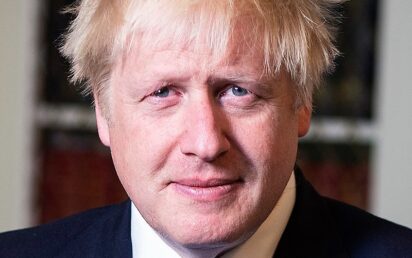Plans for a new watchdog to counter the market dominance of the likes of Facebook and Google – revealed last year by the government – seem to have been shelved.
Billed by the government as a ‘tough new regulator’ when announced in April 2021, the Digital Markets Unit was created to ensure that Big Tech cannot exploit its position to crowd out competition and stifle innovation online.
Based within the Competition and Markets Authority – the body which has powers to block deals on competition grounds to safeguard the interests of the public – it was to be funded from an extra £20 million handed to the CMA for the 2021/22 financial year to establish new units.
However, according to a report in the Financial Times, the government’s new legislative programme set to be revealed in the Queen’s Speech on May 10th is not expected to give the body statutory powers.
The DMU recruited 60 staff around its ‘shadow’ launch last year and has been preparing bespoke codes of conduct for companies such as Google and Facebook, while figuring out how it will operate in practice.
The body also aimed to introduce ‘pro-competitive’ interventions, such as forcing companies to share data with each other, and coordinate with international partners.
The lack of statutory powers for the unit would render it unable to levy fines against technology companies.
Julian Knight, Tory chair of the Commons digital, culture, media and sport committee, said if legislation to empower the tech regulator was not in the Queen’s Speech it would “damage the credibility of the whole enterprise”.
“It would be a hammer blow to the capability of the UK to regulate these sectors,” he told the FT.
The government has already dropped a bill from the Queen’s Speech on reform to audit and corporate governance following several corporate scandals.
The FT cited Tory officials who said Boris Johnson was “going cold on state intervention in the economy”. David Canzini, the prime minister’s deputy chief of staff, has reportedly told colleagues “that Conservative governments don’t legislate their way to prosperity and growth”.
We started in a Portakabin – now we’re a multi-million-pound tech business
It seems a big climbdown after ministers trumpeted the DMU’s mission statement last year.
At the time of the shadow launch, then Digital Secretary Oliver Dowden said: “Today is a major milestone in the path to creating the world’s most competitive online markets, with consumers, entrepreneurs and content publishers at their heart… this will pave the way for the development of new digital services and lower prices, give consumers more choice and control over their data, and support our news industry, which is vital to freedom of expression and our democratic values.”
Business Secretary Kwasi Kwarteng said at the time: “This is a significant step towards our goal of improving consumer choice and delivering better services at lower prices. The UK has built an enviable reputation as a global tech hub and we want that to continue – but I’m clear that the system needs to be fair for our smaller businesses, new entrepreneurs and the wider British public.
“Our new, unashamedly pro-competition regime will help to curb the dominance of tech giants, unleash a wave of innovation throughout the market and ensure smaller firms aren’t pushed out.”
The DMU is led by Will Hayter, who joined following his work at the Cabinet Office supporting the UK’s transition out of the EU.


